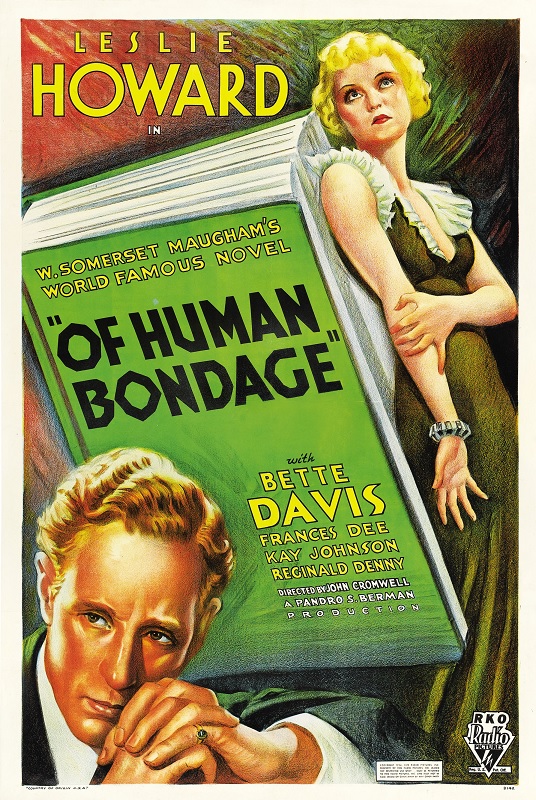


1934 – Bette Davis
Of Human Bondage
I know that this review should really be about Bette Davis’s performance, and not about the movie she performed in. But I have to say, I really didn’t care for this movie. I didn’t like any of the characters or their motivations. I didn’t like the plot. I didn’t like a lot of the stylistic choices the director made. And I didn’t like the poor picture quality. But all that being said, Davis turned a powerful performance.
This was the first of eleven Best Actress nominations that Davis received over the course of her long and prolific career as an actress. Her performance was so widely acclaimed that even though she was technically not nominated for the Best Actress category, several influential people mounted a campaign to have her name included on the ballot. According to Wikipedia, “For a period of time in the 1930s, the Academy revealed the second- and third-place vote getters in each category: Davis placed third for best actress above the officially nominated Grace Moore.”
In this movie, she needed to play a woman who heartlessly uses a man’s affections to take advantage of him, and Davis really did the part justice. I couldn’t stand the character. She was mean and self-serving. She was callous and manipulative. I wasn’t really supposed to like her, and to Davis’s credit, I didn’t. There would have been something wrong if I had.
In the first two thirds of the movie, the role of Mildred Rogers didn’t require a lot of range from the actress. She was sweet and smiling with one man, then instantly cold and unaffectionate with another, and that was about it. But in that final third of the film, Mildred went off the rails a bit. She screams at Dr. Carey, saying that she never loved him and had to wipe her mouth whenever she kissed him. The next day she trashes his apartment, slashes his beloved paintings, and sets fire to his securities and bonds, effectively destroying his medical school tuition funds. After that, she becomes a prostitute, contracts tuberculosis, and dies alone and in extreme poverty.
It was during these final scenes where Davis really shined, especially the scene in which she learns that her illness is in its final and fatal stages. I can totally see why her performance was lauded above Grace Moore’s mild performance in One Night of Love. There was a clear power in Bette Davis’s performance that made her stand out in a movie that I didn’t really like.





